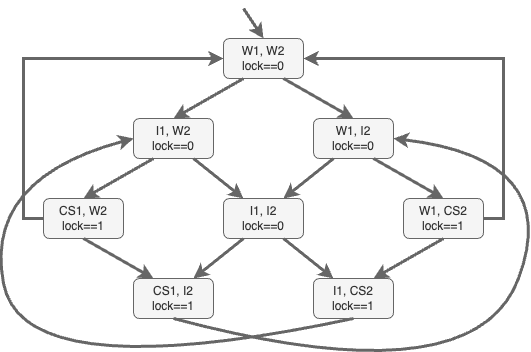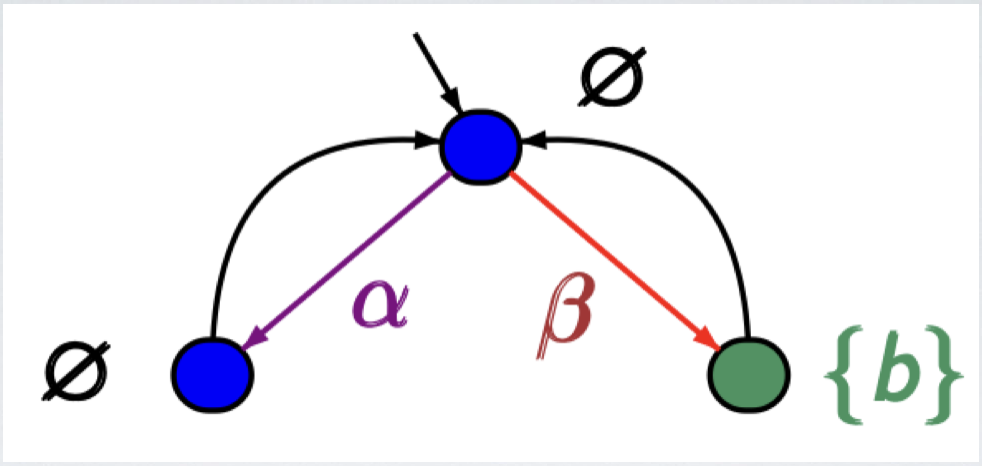Fairness
Fairness for liveness verification
Frédéric Herbreteau, Bordeaux INP/LaBRI (frederic.herbreteau@bordeaux-inp.fr)
Unfair violation of liveness properties
Liveness properties are often violated although we expect them to hold
Example: Each waiting process will eventually enter the critical section (absence of starvation)

Many fairness conditions

- Unconditional fairness every process gets its turn infinitely often
- Strong fairness every process enabled infinitely often gets its turn infinitely often
- Weak fairness every process enabled almost always, gets its turn infinitely often
Exercise: Which condition(s) above eliminate the bad run in the previous slide?
Remark: unconditional $\implies$ strong $\implies$ weak
Example (1/3)

Exercise: Is ‘‘infinitely often b’’ true for executions that are:
- unfair (no extra fairness condition)
- weakly fair w.r.t. $\alpha$ and $\beta$?
- strongly fair w.r.t. $\alpha$ and $\beta$?
- unconditionally fair w.r.t to $\alpha$ and $\beta$?
Example (2/3)

Exercise: Express all three fairness conditions in TL:
- unconditionally fair w.r.t to $\alpha$ and $\beta$
- weakly fair w.r.t. $\alpha$ and $\beta$
- strongly fair w.r.t. $\alpha$ and $\beta$
assuming we have atomic propositions:
- “$en_a$” when action $a$ is enabled,
- and “$a$” when action $a$ occurs.
Example (3/3)

Exercise: Express “infinitely often b” under all three fairness conditions in TL
- unconditionally fair w.r.t to $\alpha$ and $\beta$
- weakly fair w.r.t. $\alpha$ and $\beta$
- strongly fair w.r.t. $\alpha$ and $\beta$
assuming we have atomic propositions:
- “$en_a$” when action $a$ is enabled,
- and “$a$” when action $a$ occurs.